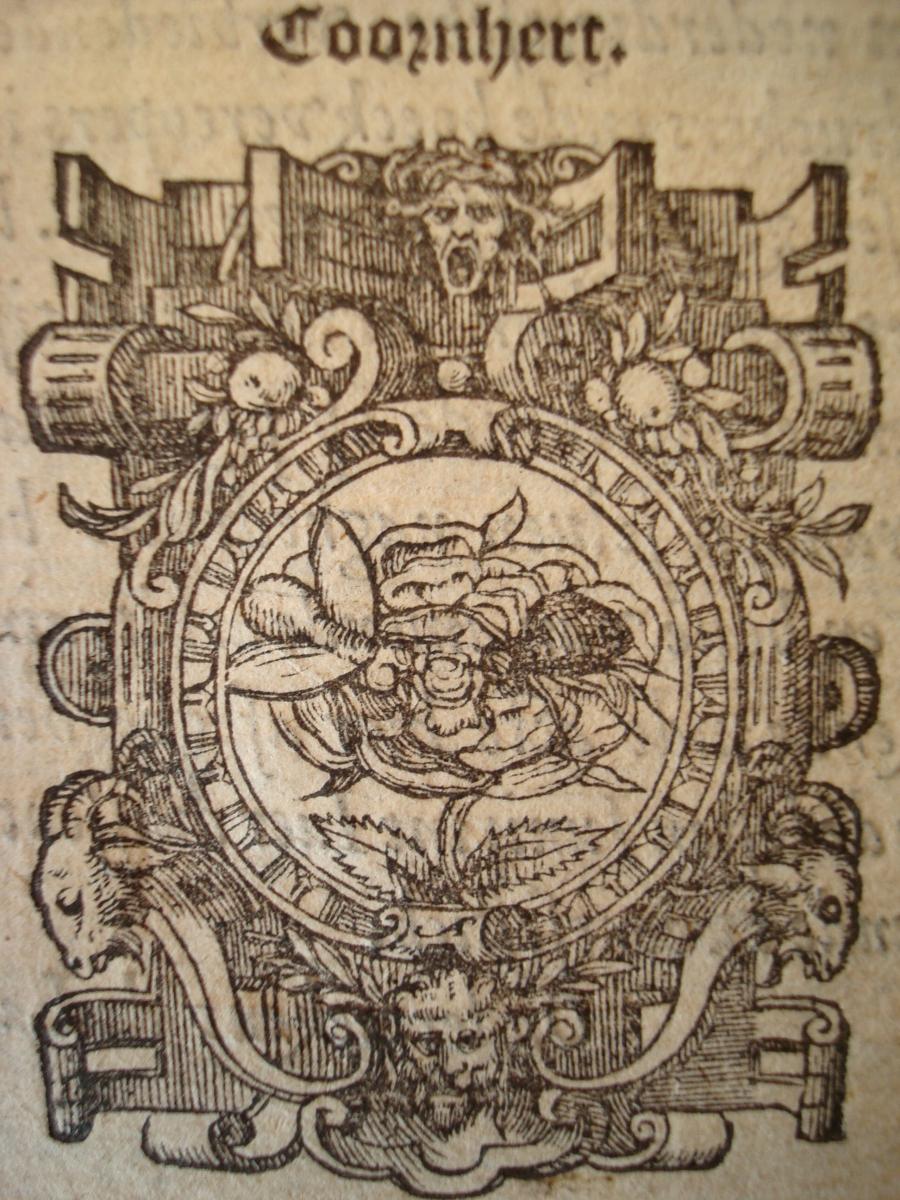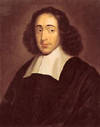Coomhert as a philosopher and poet

Key themes in Coomhert's work are 'perfectibility', the 'chief reason' and 'true science'. And 'the Golden Rule', which he puts in a naturalistic frame.
"Man is not conceived and born in sin, but in goodness. He is not predestined to eternal salvation or damnation, but he can, with Christ's grace, make himself perfect, even on Earth. This requires that he exercises the right and with free will sends his life for the better continually. Free will shall take the best decisions when it can call on a true and honest opinion. If the opinion is right, then the whole man is well. When is this the case? If the opinion is guided on the "chief cause" and the "true science".
"What you do not want done to yourself, don't do that to another" and vice versa, "treat one another like yourself want to be treated".
Coornhert a renewer of penalty application

Epigraph of penal institution 'Rasphouse'
'Don't fear I don't revenge evil but force to well,
firm is my hand, but amiable my soul'
Coomherts philosophy of nature

ILLUSTRATION OF COORNHERT ROSE WITH BEE AND POISONSPIDER
- (left) Coornhert illustrates his translation of Cicero's' s with a rose which attracts bees and poisonspiders
-Coomhert wrote an Ethics (without God)
- He wrote a book about 'highest good'
- Tried to show that original sin is not in the Bible. To this end he collected themes from the Bible and learned Latin: start of Bible analysis.
- 'Tyranny evokes violence not freedom'.
Perfectibility in Coornhert and Spinoza
In many respects one can see in Coornhert a predecessor of Spinoza, living more then a century before him. The idea of the perfectibility one finds in Ethics IV Appendix,chapter IV.
"In life, it is of first importance to perfect understanding and reasoning as much as possible and this is one's highest happiness or blessedness of humans' (Spinoza, Eth IV, app, ch. IV)